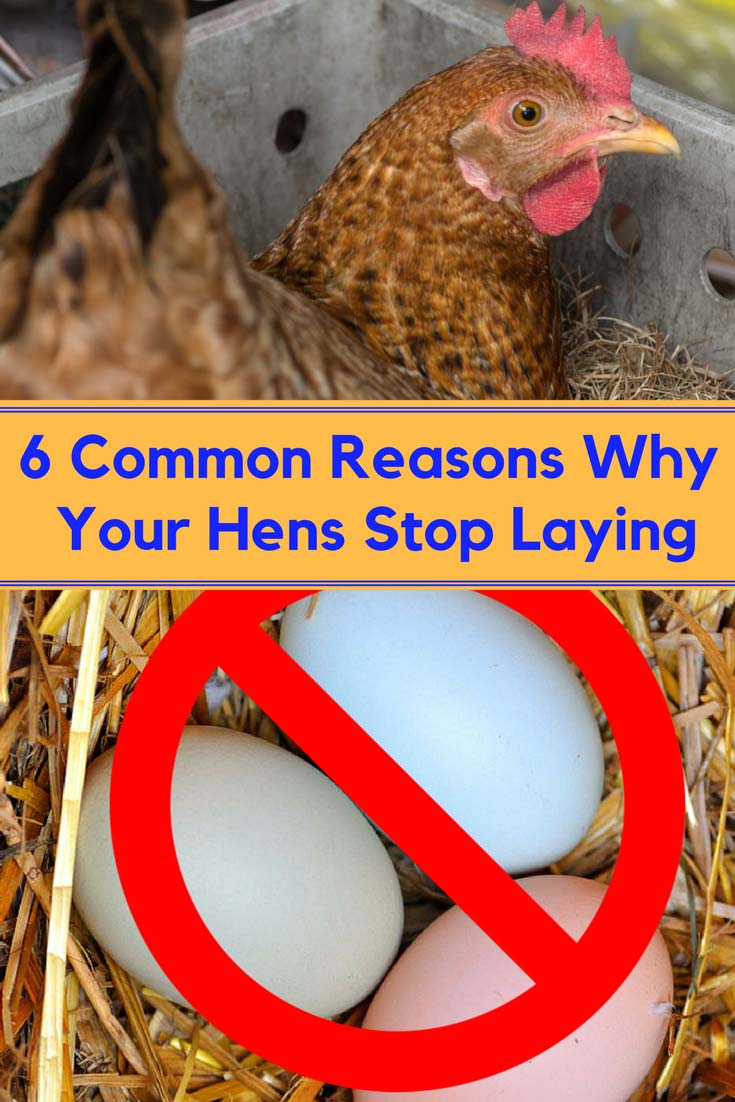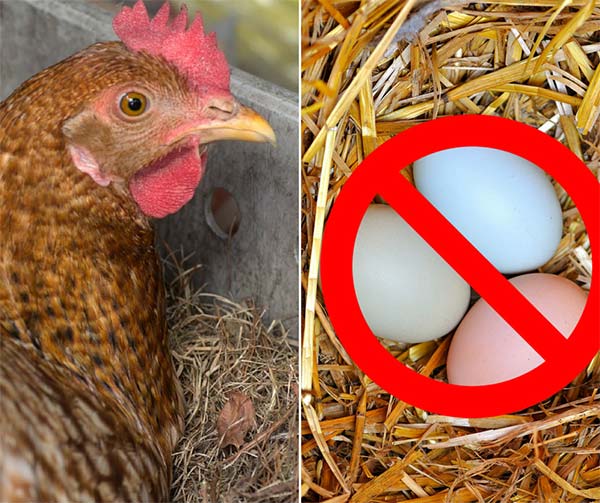6 Common Reasons Why Your Hens Stop Laying
Most people who keep a backyard flock do so for the delicious, farm-fresh eggs. It’s always concerning when the hens suddenly stop laying. In addition to the inconvenience when there suddenly aren’t eggs for breakfast, there’s the anxiety that perhaps something is really wrong with them. In fact, a sudden decline in egg production can signal a health concern. For this reason, it’s a good idea to keep track of your chickens’ laying habits. That way, you will know as soon as possible if something is wrong.
But reduction in laying doesn’t necessarily indicate illness. There are several possible reasons your hens may have stopped laying eggs. While not every reason can be outlined here, some reasons are more likely than others. let’s take a look at some of the most common reasons your hens may have stopped laying and what you can do to encourage your hens to resume laying.
6 most common reasons hens stop laying:
Old Age:
Chickens that are properly cared for tend to live around 8-10 years but they generally only lay productively for 5-7 years. Therefore, it is perfectly normal for older members of your flock to be either non-layers or minimal-layers. If you keep several generations of chickens, it’s easy to lose track of the ages of individual birds, especially if you have many of the same breed. It can be challenging to tell two Buff Orpingtons or Rhode Island Reds apart.
Inadequate Nutrition:
It’s a common misconception that a flock of laying hens can subsist on foraging, kitchen scraps, and a handful of cracked corn. The hens might survive, but they will not be good layers. Hens require a balanced diet that is very high in protein and calcium in order to maintain healthy egg production. In order to produce eggs which contain a lot of protein and, on average, 2 grams of calcium, hens need to first ingest these nutrients. Inadequate nutrition including a shortage of protein or an imbalance of amino acids can negatively impact egg production.
Navigating the feed store can be confusing. There are so many different types of food marketed for chickens. How do you know which one to feed your flock? Here are some tips to bear in mind:
- Stick to food manufactured specifically for layer hens. A prepared layer ration will ensure the correct ratio of nutrients.
- If eggshells are thin or soft, this indicates inadequate amounts of calcium. Change their feed and/or provide calcium supplements in the form of oyster shell or limestone.
- Water is vitally important. Chickens need access to fresh, clean water all day every day.
- In some areas, well water has too much sodium. This could reduce egg production. If unsure of your water quality, get it tested immediately. Your county extension office can provide a water mineral analysis.
Not Enough Daylight:
Hens are attuned to daylight and seasonal changes. They are particularly sensitive to the direction in which seasons, and the corresponding daylight, are changing and their laying habits reflect his. Shorter days correspond to fewer eggs. Egg production might drop off earlier than you expect, beginning in late summer or early fall as the days get shorter.
You can “trick” the hens into laying through the winter by providing artificial light to simulate longer days. Do not leave a light on for longer than a normal-length summer day. As a rule, commercial egg producers use artificial lights to maintain egg production year-round.
If you decide to try this method, just know that hens will lay a finite number of eggs in their lifetimes. If they lay during the winter as productively as they would during the summer then they will have fewer productive years overall.
Broodiness:
When hens insist on sitting on eggs to incubate them and make them hatch this is called broodiness. Some breeds of chicken are more prone to this than others. While incubating eggs is a perfectly natural instinct for a hen, broody hens stop laying eggs. Hens that accumulate a clutch are much more likely to become broody.
The best way to prevent broodiness in your hens is to gather eggs every day. This problem is most likely to crop up in spring when the increase in natural daylight stimulates egg production. Gathering eggs on a daily basis is a good habit for sanitary reasons as well. That way you can ensure the quality and freshness of your eggs. If your hens are becoming broody, try moving either them or their nesting boxes to disrupt their attachment.
Disease:
A decline in egg production might constitute a timely warning that your flock is ill. This might sound counterintuitive, but the drop in egg production might be your only sign that the birds are struggling with disease. Chickens might show other symptoms of illness but, depending on the illness, they might not. If you do suspect that your birds are ill, contact a poultry veterinarian immediately. Some diseases can be treated effectively if caught in time.
An important factor to consider is the possibility of contagion to other flocks and other species. Certain highly virulent diseases, such as Avian Influenza, will quickly spread from your flock across an entire region. A timely diagnosis minimizes the chances of zoonotic transmission of a disease like bird flu from chickens to humans.
Molting:
Chickens generally do not molt during their first year but each year thereafter, typically in late summer, they will molt. A hen will not lay while molting. Ceasing egg laying affords the hen a much-needed rest and allows her to shed old feathers and restore her plumage with new ones.
During this time, the hen’s reproductive tract is refreshed. When she does continue laying, the eggs will be higher quality and the rate of production will increase.
Molting usually occurs in late summer or early fall, when the change in season compels a natural reduction in egg production. Hens belonging to a single flock will usually molt in synchrony unless artificial lighting throws them off. If there is artificial lighting, hens can molt at any time of year. They should resume laying after a few weeks.
 Home and Gardening Ideas At home and Gardening ideas we believe inspiring readers about homesteading, self sufficiency
Home and Gardening Ideas At home and Gardening ideas we believe inspiring readers about homesteading, self sufficiency








One comment
Pingback: Reasons Your Hens Are Not Laying Eggs